Live. Action. Anime. These three words elicit a kind of dread that has no equal in the modern anime world.
Earlier this week, Variety reported that Lucy and Under the Skin star Scarlett Johansson will be taking on the lead role in DreamWorks’ adaptation of Ghost in the Shell.
In 2008, the studio acquired the rights to the live-action adaptation and went through two different screen writers before settling on Bill Wheeler, writer of The Hoax, to create the final script. Hollywood has a pretty bad track record in making anime adaptation happen and making them well when they do, but they seem to have a bit more fuel in the tank with this one.
“DreamWorks principal Steven Spielberg is a huge fan of the original,” the Variety report said. “And has long wanted to get this film off the ground.”
Created by Shirow Masamune in 1991, the manga follows members of Public Security Section 9 and their operations in the fictional Japanese prefecture of Niihama. In 1995, director Mamoru Oshii adapted the series into an animated film and helped bring the series to a wider audience outside of Japan.
Whether the live-action film’s producers are looking to make a direct adaptation of Shirow’s manga, a reinvention of Oshii’s film, or a re-envisioning like Ghost in the Shell: Stand Alone Complex – a TV series adapted from the manga – is still unknown, but critics have a right to be sceptical.
Akira, created by Katsuhiro Otomo, and Neon Genesis Evangelion, created by Hideaki Anno, are two projects that have been mired in controversy since their live action adaptations were announced. Over the years and the many writers, actors, and directors who have been slated for the projects, nothing has come of them, which is actually a good thing for fans.
Remember Dragonball Evolution? Remember Speed Racer? The Guyver? Street Fighter: The Movie? Fist of the North Star? Let’s just say some films are better left in the $5 dollar discount bin, but with Scarlet Johansson attached to this sort-of-new project hopes are a little higher.
Let’s not pit the blame entirely on the West as the birthplace of anime itself has a pretty bad history of mediocre box office flopping live-action adaptations (try saying that five times fast).
Live-Action Anime Animosity
Way back in September 2013, I had a chance to watch the Ace Attorney movie here in Toronto. While it was a very faithful adaptation of the video game series and had director Takashi Miike (Dead or Alive and 13 Assassins) at the helm, it still wasn’t able to live up to the source material.
The problem was how it copied every little detail including the ridiculous designs of the characters. While the games are good, they’re also kind of laughable when compared to court dramas like 12 Angry Men or To Kill a Mockingbird, an apt comparison being a book adapted into a film.
What I’d have preferred to see was a more serious take on the games. Maybe Phoenix Wright could have been a bit darker of a character perhaps reinvented for the purpose of believability. Maybe they could have gotten rid of character like Maya Fey who ends up being little more than pathetic damsel in distress in the movie. Basically, we ended up getting a bunch of characters running around in cosplay.
There are countless examples of anime and manga adapted by Japanese studios that failed to meet up to the original. Here in North America, we had our own tragedies with films like Dragonball Evolution taking a series, ripping out its heart and soul, and giving us a schlocky piece of garbage.
The Dragonball film had nothing to do with the manga or anime instead putting a North American actor in the lead role and reaching levels of Avatar: The Last Airbender levels of poor dialogue and laughable action.
The two films represent the polar opposites of what can happen when a film studio acquires the rights to a manga or an anime. They can take too much or they can take too little.
However, that’s not to say there haven’t been some good adaptations. Films like Old Boy and even Ruroni Kenshin managed to use source material and make something that even general audiences could enjoy.
But this is the history of manga and anime being turned into film.
With a series like Ghost in the Shell that has a manga, two feature-length films, countless video games, an original video animation, and a television series, screen writer Bill Wheeler has a lot to live up to and lot to figure out to make his vision a reality.
Lessons Learned making a Manga into an Anime
One aspect of this story that’s been largely ignored is the original film adaption. Mamoru Oshii’s adaptation wasn’t faithful to the source material, which actually turned out to be a good thing.
The manga was filled with comical hijinks, scantily-clad cyborgs having sex, and a kind of fetishtization of weaponry only seen in gun fancier magazines. Shirow Masamune is in love with futuristic technology, but Momoru Oshii’s adaptation takes a different route with the characters and the setting of Ghost in the Shell.
Gone are the emotion of Motoko Kusanagi and gone too are the vibrant colours that almost bleed on the manga’s page. In its place is a serious philosophical discourse and the more realistic setting that the film is known for today. We get a dialogue on what a world where humans, computers, and technology exist in harmony, but what happens with strains of discord disrupt the balance.
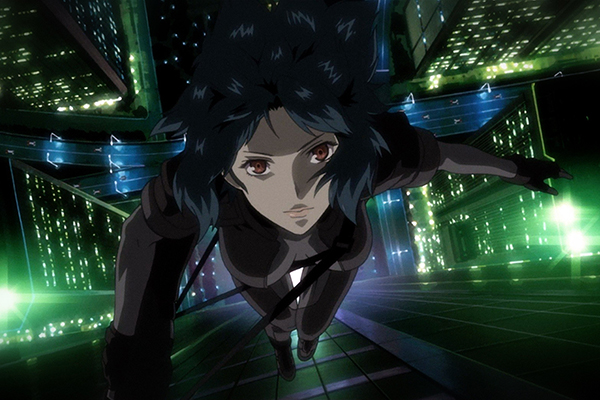
Motoko’s looks have changed over the years from having vibrant purple hair to hair black as night, but more than just her hair colour has changed.
Even Motoko’s appearance reflects the difference in direction between the manga and animated film. Motoko’s hair is black and her features are emotionless while in the manga and television series her purple hair and feisty personality are her main draws.
Oshii’s films take from the manga, but don’t try to rise to it. It does something unique by drawing on certain aspects and ignoring others, and what they ended up creating is an award-winning film that’s still talked about to this day. This new live-action film will have to decide what version of Ghost in the Shell they want to present and how they’re going to make it believable for the film’s international audience.
There’s even news of a new Ghost in the Shell animated movie on the way, so there’s plenty of source material to work with. The last thing anyone wants to see is a repeat of Resident Evil or Street Fighter: The Movie.
***
Is there any way for the Ghost in the Shell movie to succeed? If it’s a direct adaptation, no. If it’s an adaptation that ignores the source material, no.
What a Western film can do is take a concept, an idea, or even a single image and make it into something fairly watchable. Edge of Tomorrow, for example, mirrors Hiroshi Sakurazaka’s All You Need Is Kill.
Although it was an adaptation, the Tom Cruise flick wasn’t marketed as such and was unique enough to pull off the original concept without trying to appease the manga’s fans. It essentially took something awesome and made something awesome, but for a general audience and kinda at the expense of the original creator.
If the creators of the new Ghost in the Shell movie want their adaptation to be a success they shouldn’t try to make a shot-for-shot copy of the manga or the original film. What they need to create is something uniquely their own.
The process of finding a balance will require them to think outside of the box and even consider the viability of Scarlet Johansson portraying Motoko Kusanagi, who is technically an Asian cybernetic human. Maybe set the films outside of Japan and with the United States’ version of Section 9? Maybe try to avoid casting Ron Perlman as Batou? Maybe avoid making a basset hound a main character?
There’s even a chance of recasting the crew using a Japanese-American (or Japanese-Canadian) female lead to play Motoko, but the responsibility lies now on the cast and crew’s shoulders to make the futuristic world envisioned by Shirow Mamsamune and Mamoru Oshii into something audiences and fans alike can appreciate.







 08 Jan 2015
08 Jan 2015
 Posted by Matthew O'Mara
Posted by Matthew O'Mara 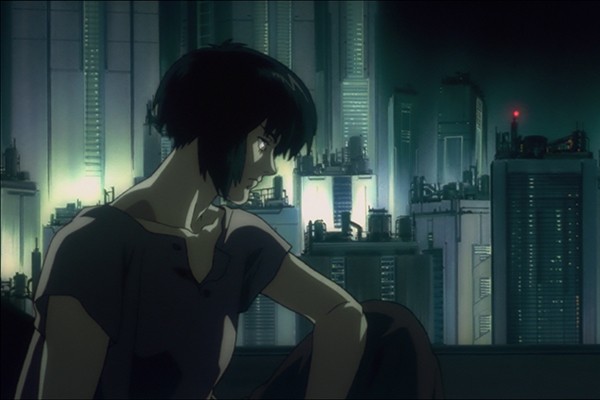

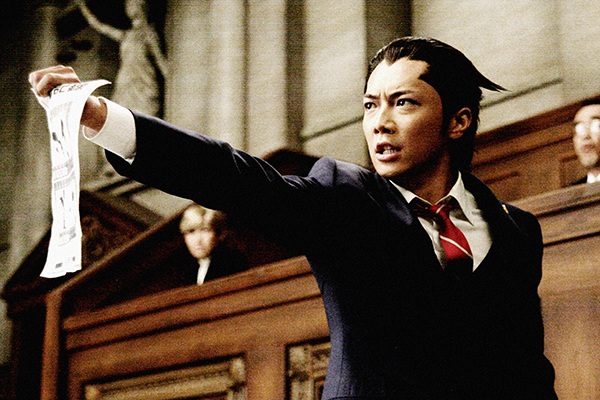





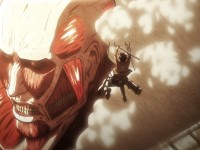




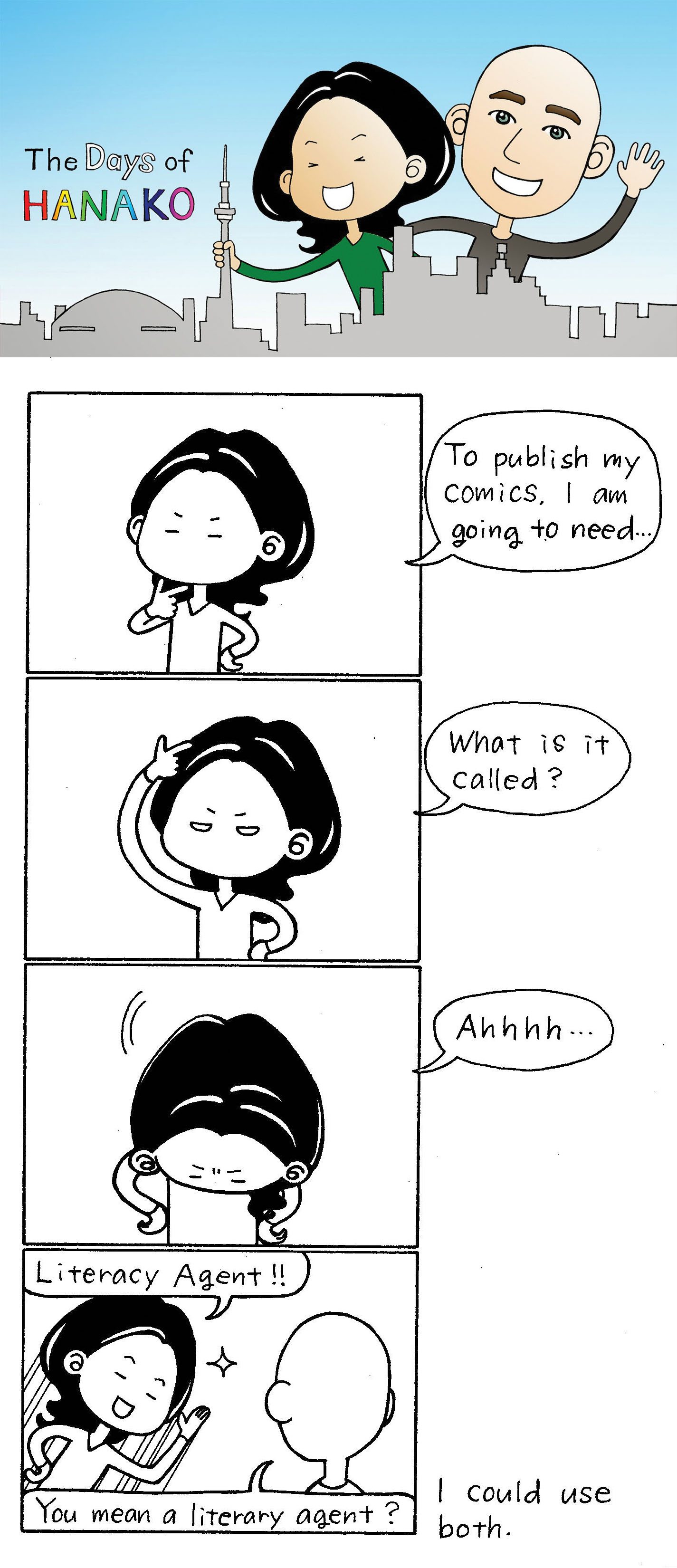



2 Comments
Having Scarlet in there definitely is not something good or promising, let’s be realistic here, she is not a good actor, she will not be able to portray a complex character. Her roles are those of a shallow eye candy. I cannot take her or the movie seriously.
Dear God, this is going to be terrible. Flashbacks of the live action Dragon Ball Z movie spring to mind. I can’t imagine any possible way for this not to be terrible.
On the plus side, when this thing bombs and is raked over the coals by everyone, it will hopefully deter the hollywood studios from bastardizing Death Note and Akira like they plan to.